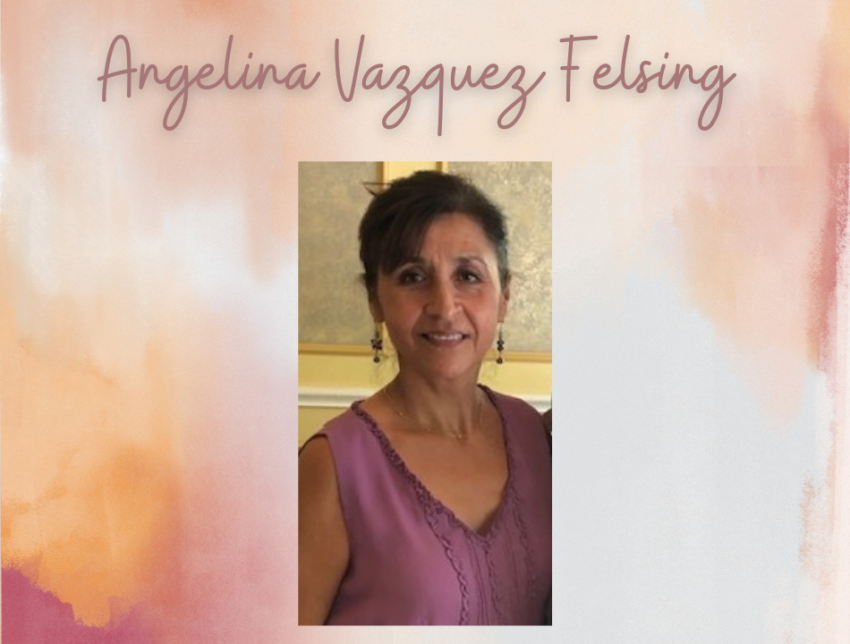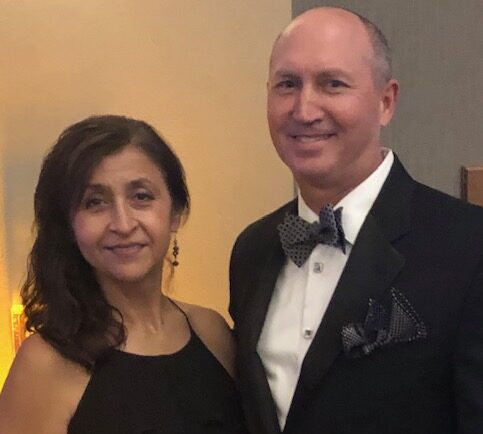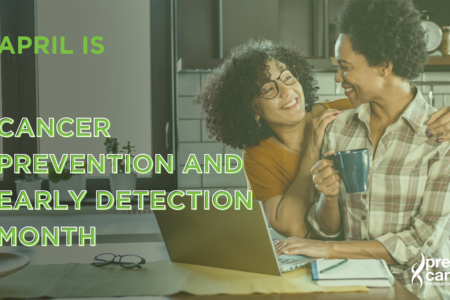
Share On Social!
“It was kind of a fluke.”
That’s how Angelina Vazquez Felsing describes the events that led to her diagnosis of lung cancer.
Like many, Vazquez Felsing maintained a healthy lifestyle.
She didn’t smoke. She ate healthy, ran regularly, and had no family history of cancer.
Vazquez Felsing, who immigrated from Mazatlán, Mexico, in 1972, grew up in the Floresville area and has lived in San Antonio for many years.
It all started when Vazquez Felsing went to her yearly checkup through the wellness program at her job, where she has worked as a systems analyst for 17 years.
“They found something that was a little bit odd. They said, ‘Well come back in a year, and we’ll do another CT scan,’” she said. “And when I went back, they found that whatever was there had grown significantly.”
Navigating a Diagnosis
Following the scans, Vazquez Felsing was referred to pulmonologists at UT Health San Antonio, where she got a positron emission tomography, or PET, scan.

“That’s when I found out that I had the stage two lung cancer,” she said.
News of a cancer diagnosis can be unexpected and a hard thing to hear for anyone
“All I remember is crying, can’t believe that this is happening,” according to Vazquez Felsing .
To add fuel to the fire, Vazquez Felsing faced additional medical challenges.
“At the time, I had also broken my foot like the week before. Let me tell you, 2019 was a horrible year,” she said. “Due to the broken foot, they found that I had a blood clot five days before my surgery, so, then I had to start taking blood thinners.”
Despite this, Vazquez Felsing hit the ground running and took advantage of online resources to educate herself and better understand her diagnosis and plans going forward.
“Go out there and see what resources are on the internet. But also, if your doctors have support groups, go to those support groups, because they can also offer additional information,” she said.
Choosing to Participate in Clinical Research
As a cancer survivor, Vazquez Felsing wants to help other Latinas who face cancer.
Fortuitously, while visiting her oncologist, she saw a stand-up banner for the Avanzando Caminos (Leading Pathways): The Hispanic/Latino Cancer Survivorship Study at the Mays Cancer Center at UT Health San Antonio.
The Avanzando Caminos study, led by Dr. Amelie Ramirez, is teaming up with local Latino cancer survivors – like Vasquez Felsing – to help unpack the social, cultural, behavioral, mental, biological, and medical influences on post-cancer life.
“I decided to sign up and also because I hadn’t heard or seen anything that was very Latino specific,” Vazquez Felsing said.
Latinos represent less than 10% of volunteers in cancer clinical trials.
This lack of representation in clinical research makes it harder for researchers to find treatments tailored for this group, which now makes up 19.1% of the total U.S. population.
Vazquez Felsing has had positive experiences in sharing her cancer journey with the Avanzando Caminos research team. She said she deeply appreciates the study team, its goals, and all the medical professionals who have helped her through this journey.
“It makes me feel proud and makes me feel good that I can be of benefit,” she said. “I feel very grateful that I did have the resources and that I can help.”
Join the Avanzando Caminos Study
You can be like Vazquez Felsing!
The Avanzando Caminos study aims to enroll 1,500 Latino cancer survivors in South Texas and 1,500 more in Miami to better understand the Latino experience after cancer.
“With the help of Latino cancer survivors, we can help future Latino cancer survivors heal, recover, and reduce the chance for cancer to come back,” Dr. Ramirez said.
Avanzando Caminos volunteers should be:
- Age 18+ and able to read in English or Spanish
- Willing to attend study visits
- Completed primary treatment for breast, colon, kidney, liver, lung, prostate, stomach or uterine cervix carcinoma in past 10 years
- No severe cognitive impairment or inpatient psychiatric treatment in past 6 months
Volunteers receive $50 per visit.
Find out more information in English or Spanish.
To volunteer, contact Dr. Ramirez’s Avanzando Caminos team at the Institute for Health Promotion Research at UT Health San Antonio at caminos@uthscsa.edu or 210-562-6514.
Dr. Ramirez continues to help Latinos volunteer for cancer and Alzheimer’s clinical trials.
Through Salud America!, she is highlighting open clinical trials, conducting webinars, and sharing stories of real Latino clinical trial participants to overcome clinical trial barriers. This work is supported by Genentech, a member of the Roche Group.
“Latinos who volunteer in clinical trials are helping themselves. And they’re building a future with better treatments that can help their families in the years to come,” Dr. Ramirez said.
By The Numbers
1
out of 10
Pedestrians survive when hit by a car at 40 MPH
This success story was produced by Salud America! with support from the Robert Wood Johnson Foundation.
The stories are intended for educational and informative purposes. References to specific policymakers, individuals, schools, policies, or companies have been included solely to advance these purposes and do not constitute an endorsement, sponsorship, or recommendation. Stories are based on and told by real community members and are the opinions and views of the individuals whose stories are told. Organization and activities described were not supported by Salud America! or the Robert Wood Johnson Foundation and do not necessarily represent the views of Salud America! or the Robert Wood Johnson Foundation.



